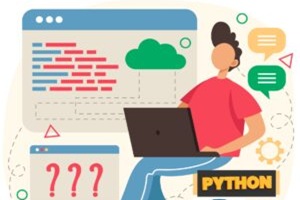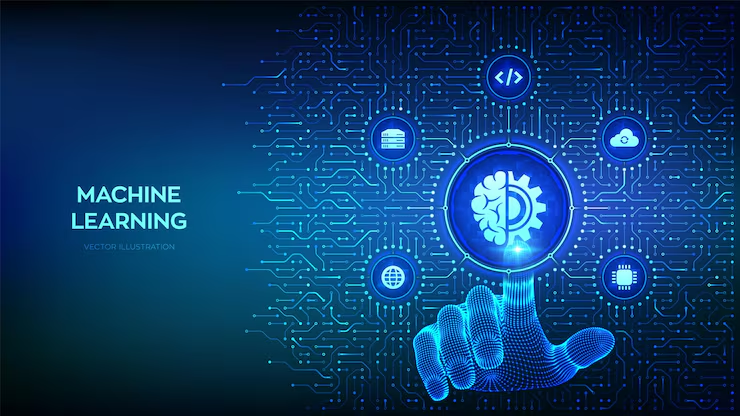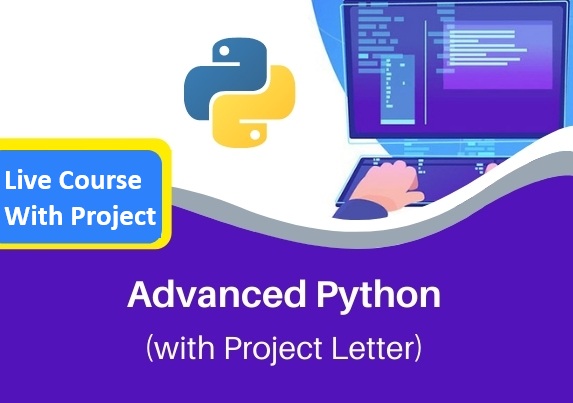What You'll Master in This Course:
- Getting Started Right:
- Understanding Programs, Execution, and Programming Languages: Grasp the core concepts of how code works and interacts with computers.
- Setting Up Your Python Environment: Get hands-on with installing Python, setting up development tools, and running your first programs.
- Building Blocks of Python:
- Python Variables and Data Types: Learn to store and manipulate data using integers, floats, strings, booleans, and more.
- Operators and Comments: Master arithmetic, comparison, logical, and assignment operators, alongside best practices for writing clear, maintainable code.
- Logic, Control, and Data Management:
- Conditional Statements in Python:
- Control your program's flow with
if,elif, andelsestatements. Loops in Python: Automate repetitive tasks usingforandwhileloops, along withbreakandcontinue. - Python Lists: A Versatile Data Structure: Dive deep into dynamic arrays, learning to add, remove, modify, and iterate through elements.
- Understanding Tuples in Python: Discover immutable sequences and when to use them for data integrity.
- Python Dictionaries and Sets: Master key-value pairs for efficient data retrieval and unique collections for advanced data manipulation.
- Organizing and Structuring Your Code:
- Functions in Python: Write reusable, modular code, understand arguments, return values, and scope.
- Object-Oriented Programming (OOP): Step into the world of classes, objects, inheritance, polymorphism, and encapsulation for building robust and scalable applications.
- Python Modules and Packages: Learn to organize larger projects, import functionalities, and leverage Python's rich ecosystem of libraries.
- Robustness, Persistence, and Advanced Techniques:
- Python Error Handling: Implement
try-except-finallyblocks to gracefully manage errors and build resilient applications. - Python File I/O: Learn to read from and write to various file types, making your programs data-persistent.
- Iterators and Generators in Python: Explore advanced concepts for efficient memory management and elegant handling of sequences.
- Python Decorators: A Comprehensive Guide: Unravel the magic of decorators to modify or enhance functions and methods dynamically.
- Python Error Handling: Implement
- Project
Why Choose This Course?
- Comprehensive Curriculum: Covers every essential topic from beginner to advanced.
- Practical Focus: Learn by doing with hands-on examples and coding challenges.
- Clear & Concise Explanations: Complex concepts are broken down into easy-to-understand modules.
- Build Real-World Skills: Gain the confidence to develop your own projects and solve practical problems.
- By the end of this course, you won't just know Python syntax; you'll understand how to think like a Python programmer. You'll be equipped with the skills to build robust applications, solve complex problems, and confidently tackle real-world programming challenges.
Your 21-Day Python Mastery Plan (1 Hour/Day)
Day 0: Preview (30 min)
Module 1: Getting Started Right
- Day 1: Understanding the Basics & Setup (Core Concepts & Environment)
- Focus: Grasp what programs are, how they execute, and the role of programming languages.
- Action: Install Python, set up a text editor (like VS Code), and run your very first "Hello, World!" program. Ensure your environment is ready.
Module 2: Building Blocks of Python
- Day 2: Variables and Basic Data Types
- Focus: Learn to store information.
- Action: Practice declaring variables, assigning different data types (integers, floats, strings, booleans). Understand
type()function.
- Day 3: Operators and Comments
- Focus: Perform operations on data and write clear code.
- Action: Practice arithmetic, comparison, logical, and assignment operators. Get into the habit of writing meaningful comments.
Module 3: Logic, Control, and Data Management
- Day 4: Conditional Statements (
if,elif,else)
-
- Focus: Control program flow based on conditions.
- Action: Write programs that make decisions. Practice various
if/else scenarios.
- Day 5: Loops (
forandwhile)
-
-
- Focus: Automate repetitive tasks.
- Action: Use
forloops to iterate over sequences andwhileloops for condition-based repetition. Understandbreakandcontinue.
-
- Day 6: Python Lists
-
- Focus: Learn dynamic arrays.
- Action: Create, access, modify, add, and remove elements from lists , sort, reverse, append, insert, pop, remove, list comprehension, and slicing.
- Day 7: Tuples
- Focus: Immutable sequences and unique collections.
- Action: Create Tuples , Accessing Tuple Elements , Tuple Immutability , Tuple Operations ,Tuple Methods ,Tuple Unpacking ,Tuples vs. Lists , Nested Tuples
- Day 8: Python Dictionaries and sets
- Focus: Efficient key-value pairs.
- Action: Create, access, add, modify, and delete elements in dictionaries. Learn common dictionary and sets methods.
Module 4: Organizing and Structuring Your Code
- Day 9: Functions in Python (Part 1 - Basics)
- Focus: Write reusable code.
- Action: Define simple functions, understand arguments, and return values.
- Day 10: Functions in Python (Part 2 - Scope & Advanced Args)
- Focus: Deeper understanding of functions.
- Action: Explore variable scope (local vs. global). Introduce default arguments,
*args, and**kwargsbriefly.
- Day 11: Object-Oriented Programming (OOP) - Classes & Objects
- Focus: Step into OOP fundamentals.
- Action: Define your first class, create objects, and understand attributes and methods.
- Day 12: OOP - Inheritance & Polymorphism
- Focus: Core OOP principles for code reusability and flexibility.
- Action: Create child classes that inherit from parent classes. See how polymorphism works with method overriding.
- Day 13: OOP - Encapsulation & Best Practices
- Focus: Protecting data and structuring classes well.
- Action: Understand public/private/protected conventions. Brief discussion on
__init__,__str__methods.
- Day 14: Python Modules and Packages
- Focus: Organize larger projects and leverage external code.
- Action: Create a simple module, import functions from it, and understand the concept of packages (e.g.,
import math,import random).
Module 5: Robustness, Persistence, and Advanced Techniques
- Day 15: Python Error Handling (
try-except)- Focus: Make your programs resilient.
- Action: Implement
try,except,else, andfinallyblocks to gracefully manage common errors.
- Day 16: Python File I/O
- Focus: Interact with files.
- Action: Learn to open, read from, and write to text files. Understand
with open(...)for safe file handling.
- Day 17: Iterators and Generators
- Focus: Efficient memory management for sequences.
- Action: Understand the difference between iterables and iterators. Write a simple generator function using
yield. (This is an advanced topic, aim for conceptual understanding and basic syntax).
- Day 18: Python Decorators
- Focus: Dynamically modify functions.
- Action: Understand the concept of "functions as first-class citizens." Implement a very simple decorator to modify a function's behavior. (This is challenging for 1 hour; focus on the "why" and basic syntax).
Module 6: Project Application
- Day 19 , 20: Final Project & Review
- Focus: Consolidate your learning by building something practical.
- Action: Choose a small project idea (e.g., a simple to-do list application, a basic calculator, a file organizer). Start outlining and implementing using the concepts learned. Don't expect to finish in 1 hour, but plan the structure and write some initial code. Use the rest of the hour to review challenging topics from the course.






